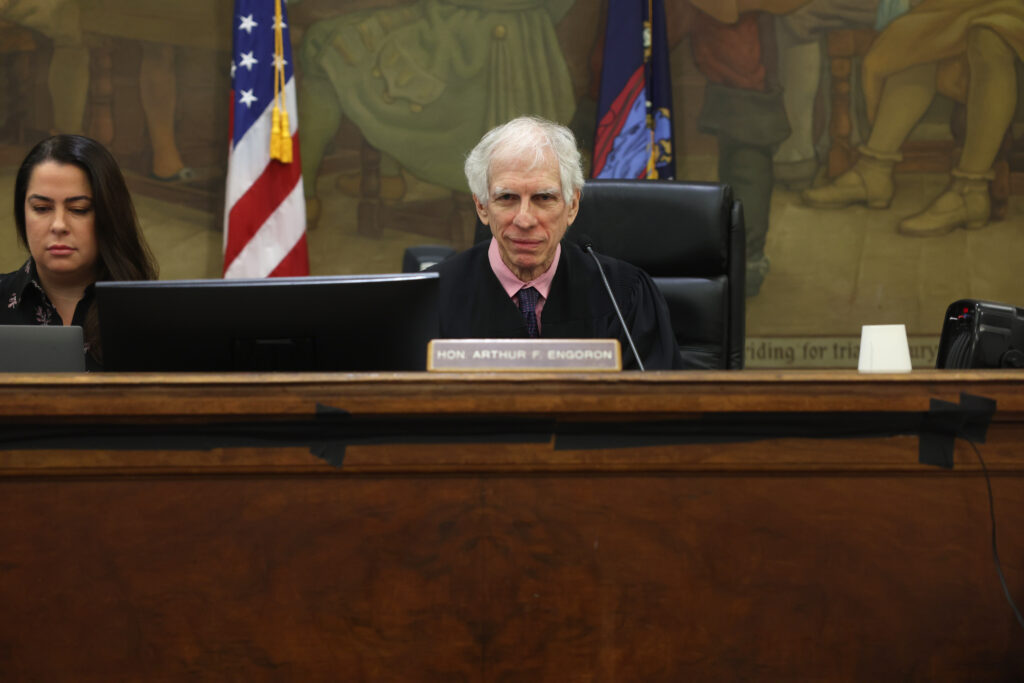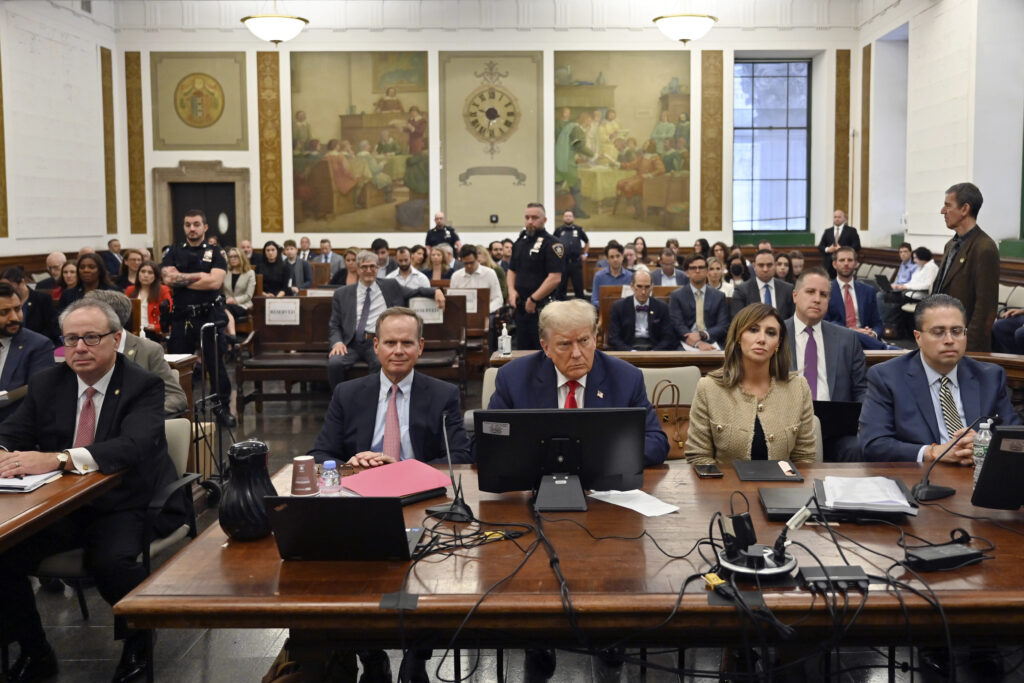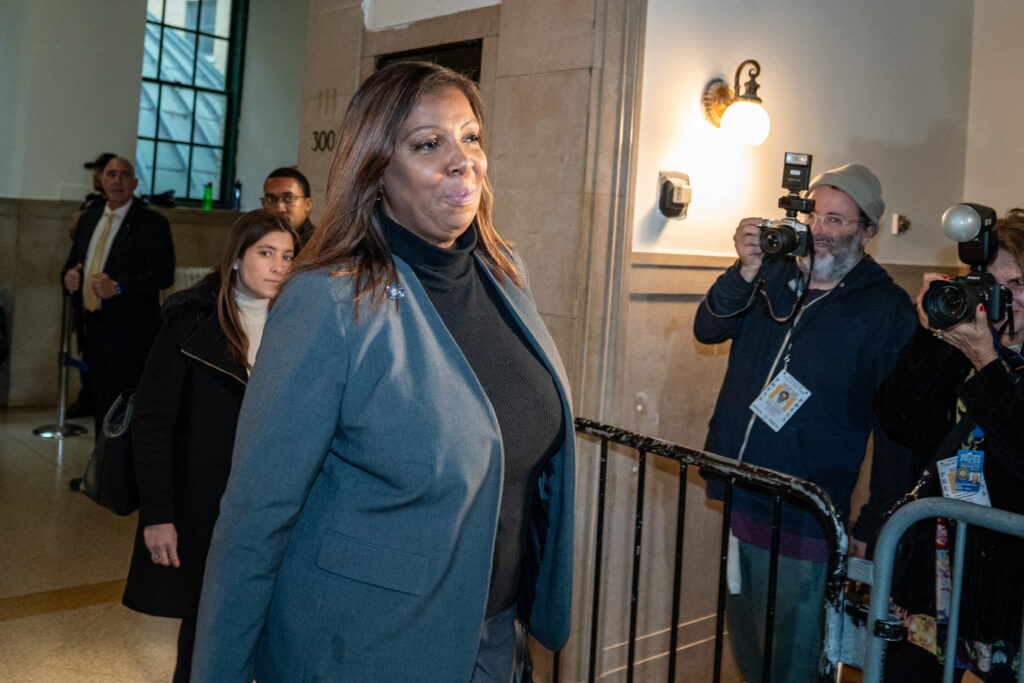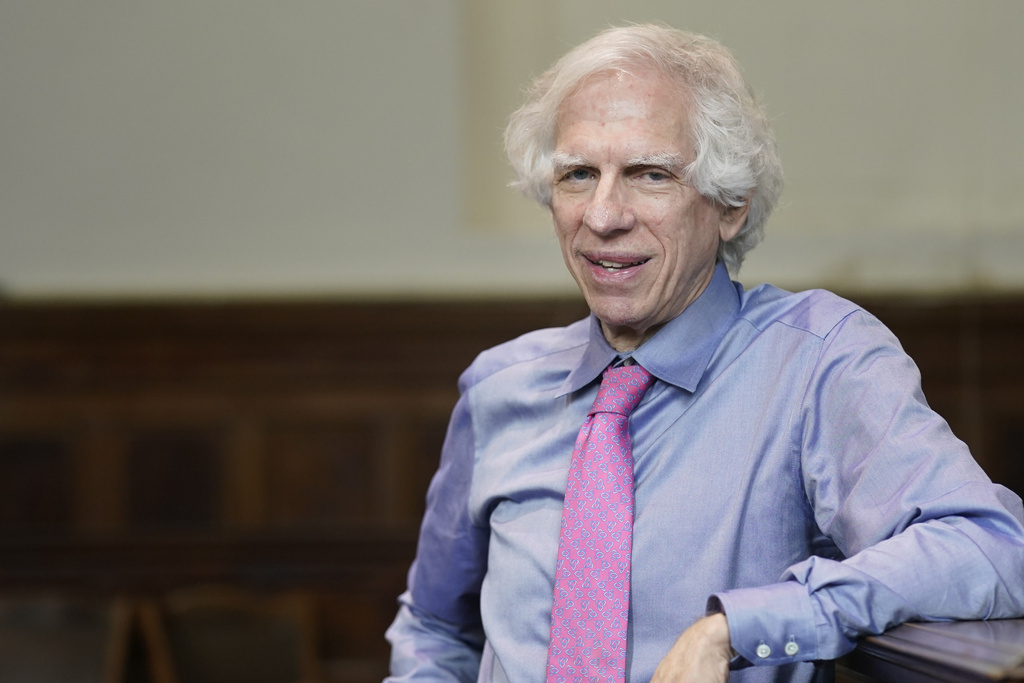Trump Lashes Out at ‘Egregious Act’ of ‘Biased Democrat Judge’ Who, in Searing Ruling, Declined To Dismiss Fraud Case
Closing arguments are scheduled for next month, but the Trump Organization has already been carefully laying out the grounds for an appeal.

President Trump brought out the heavy artillery after the judge presiding over the civil fraud case against the Trump Organization denied, in a searing ruling, his latest attempt to dismiss the charges.
“As usual, completely biased Democrat Judge Arthur Engoron,” Mr. Trump fired off on his Truth Social account on Monday evening, “denied our Motion to have this political SHAM of a case dismissed.”
“Hopefully there is a Court somewhere in the Land that can stop this rogue, out-of-control Judge, and corrupt, and thoroughly biased Attorney General, from getting away with this egregious act,” Mr. Trump fumed.
New York’s attorney general, Letitia James, sued Mr. Trump, his two adult sons, two former employees and several of his companies, for business fraud. Her suit claims that the Trumps inflated their net worth and property values on “fraudulent and misleading” financial statements to gain favorable bank loans and insurance deals.

Before the trial started in early October, Judge Engoron found the Trump Organization guilty of fraud. Such pre-trial rulings, or summary judgments, are not uncommon practice, and based on arguments and evidence provided by the prosecution and responses by the defense.
The fraud, Judge Engoron found, was the first of seven counts, leaving six more to be decided. Also to be decided after the 43 day long trial that heard 40 witnesses, are the damages. Throughout the case, Judge Engoron remained consistent with his prior ruling, causing Mr. Trump to vent at large both outside the courtroom, when he made in person appearances at the trial, and on Truth Social.
When Mr. Trump began to vent on the witness stand, where he was called to testify in November, the judge told him, “This is not a political rally.”
But Mr. Trump, who is currently the overwhelming front-runner for the GOP presidential nomination and is ahead of President Biden in some national polls, seemed unbothered by the warning, reminding court reporters in December, that despite the judge’s rulings, his poll numbers are the “highest I’ve ever had.”
Absent from Mr. Trump’s outburst on Monday evening were his previously levied criticisms of Judge Engoron’s principal law clerk, Allison Greenfield, who sits on the bench next to the judge. The defense has accused her of bias, whispering to the judge and “co-judging.” Judge Engoron gagged Mr. Trump and his attorneys from criticizing Ms. Greenfield and fined Mr. Trump a total sum of $15,000 for disobeying him, saying that his law clerk and his chambers had received hate mail and death threats.

A higher court briefly lifted the gag order, allowing for a brief interlude of more insults being lobbed at Ms. Greenfield, but ultimately upheld it. Last Friday, the defense attorneys filed a notice that they intend to take the gag order matter to the highest court in the state, the Court of Appeals.
“At least five times,” Judge Engoron wrote in Monday’s decision declining to dismiss the case, “during the recently concluded ten-and-a-half-week trial of this matter, defendants moved for a directed verdict.”
Defense attorneys usually ask judges for a directed verdict, an immediate dismissal of the case, when they believe that their client’s liability has not been proven by a preponderance of the evidence.
The first time Mr. Trump’s attorneys sought a directed verdict inside the courtroom came after they had cross-examined Mr. Trump’s former lawyer and current nemesis, Michael Cohen. His credibility, which was never solid to begin with, took another blow after he admitted to the court that he lied to a federal judge, and further testified that Mr. Trump had never actually instructed him to inflate the numbers on his financial statements.

One of the defense attorneys, Clifford Robert, demanded a “directed verdict” from the judge, emphasizing that “the state’s key witness” had disqualified their entire case. “I can’t think of anything more appropriate now,” he said.
The judge denied the request, and told Mr. Robert that he did not consider Mr. Cohen to be “a key witness” in this trial. “There’s enough evidence to fill this courtroom,” he added.
After a second oral request, which the judge “absolutely denied,” the defense filed three formal motions. The first came, as is customary, after the prosecution finished its six week long presentation, the second after the defense rested its case, and the third on the last day of testimony, after both prosecution and defense had examined the state’s two rebuttal witnesses.
In response to their request, special counsel for the attorney general, Andrew Amer, wrote that “additional evidence cannot possibly lead to a better outcome for Defendants.” He added, “Unlike a fine Bordeaux, Defendants’ case for a directed verdict does not improve with age.”

The judge, who had taken two of the motions “under advisement,” denied them all in his latest ruling. He addressed in detail the “fatal flaws” of the defense’s arguments, which Mr. Trump echoed in his three-post-long comment on social media.
“The Banks were paid in full,” Mr. Trump insisted. “We were an ideal Customer, a premier Client.” He repeated that “there was no money lost by anyone, there was no victim, in fact, these were all wonderful Transactions.”
But Judge Engoron explained that “if you pay a lower interest rate on a loan by overstating the value of any of your assets, thus lowering the perceived risk to the lender, your gains are ill-gotten.” He continued, “The lender has lost money, although the loss is not out-of-pocket,” and further argued “that the instant lenders made millions of dollars and were happy with the transactions does not mean that they were not damaged by lending at lower interest rates than they otherwise would have.”
But Mr. Trump defended the valuations of his net worth and assets, writing that “Engoron doesn’t discuss HIS Valuation of Mar-a-Lago at $18 Million, when it is worth at least 50 to 100 times that amount, but does discuss insignificant items that, when added up, are irrelevant and a very minimal part of my Financial Statements.”
Here too, Judge Engoron’s ruling addresses Mr. Trump’s accusation. “Valuations, as elucidated ad nauseam in this trial, can be based on different criteria, and analyzed in different ways,” he wrote. “But a lie is still a lie.” The judge offers several examples, “valuing occupied residencies as vacant, valuing restricted land as unrestricted, valuing an apartment as if it were triple its actual size,” the list goes on. The judge concluded that the numbers on the financial statements are not “subjective differences of opinions” but instead “misstatements at best and fraud at worst.”

The most “glaring flaw,” Engoron found, was the defense’s assumption that the testimony of their expert witnesses would be accepted as “true and accurate.”
Mr. Trump’s star witness, a New York University professor of accounting, Eli Bartov, was deemed unfit by Judge Engoron. “By doggedly attempting to justify every misstatement, Professor Bartov lost all credibility,” he wrote.
Judge Engoron referred to his pre-trial ruling several times. The state, he wrote, “has an interest in protecting the integrity of the marketplace.” The basis for Ms. James’s lawsuit is an executive law which was passed in 1956, while Jacob Javits, a Republican, was attorney general. It states that “the word fraud, or fraudulent … shall include any device, scheme or artifice to defraud, and any deception, misrepresentation, concealment …”
Despite Mr. Trump’s claim that “The Judge ignores the Law!”, Judge Engoron seems confident in his rulings and even finds that “the court of appeals” will “easily reach” the arguments the attorney general makes, “which personify frivolity.”
Defense attorney Christopher Kise was not intimidated by Judge Engoron’s ruling, which he found to be “a complete failure to address the legal elements of the claims to be decided and a rejection of the real facts from the real participants in the real world.”
“Based on the decision,” Mr. Kise said in a statement, “the testimony from the involved bankers does not matter, application of governing accounting standards does not matter, the express language of the financial statements does not matter, and the ruling from the First Department does not matter. All that seems to matter is arriving at a predetermined destination.”
The ruling by the Appellate Division First Judicial Department, that Mr. Kise referred to, froze the annulment of the business licenses and the order to dissolve Mr. Trump’s companies, which Judge Engoron had ordered in this pre-trial ruling.
The higher court found that until the case is fully decided, businesses and licenses should remain intact, thus preventing any chance of irrevocable harm, if the appeal were to result in a win for the Trumps.
But before such an appeal can trigger yet another myriad of motions and court documents, Judge Engoron must first rule on the six other legal claims. These include submitting false financial records, insurance fraud and conspiracy. The judge must also decide who, if anyone, is liable for these claims, and he must decide whether to fine anyone and, if so, how much. Ms. James is asking for more than $250 million.
Closing arguments for the case are scheduled for January 11, 2024. The judge has said he will publish his written final decision in the following weeks. The defense, in its denunciations of Ms. Greenfield and other motions, has been carefully laying the grounds for this appeal throughout the trial.

